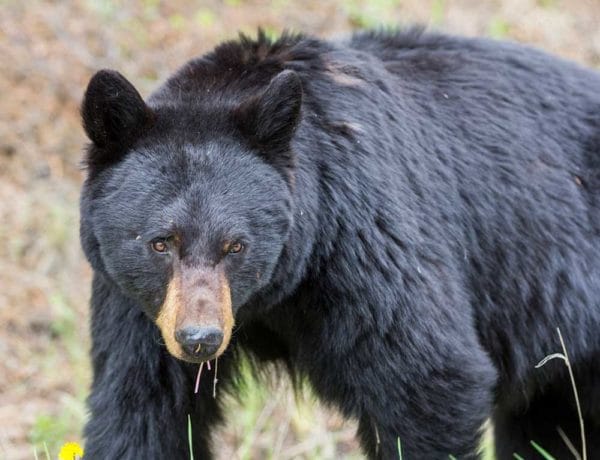
On February 15, 2024, the Florida House passed CS/HB 87: Taking of Bears. The bill passed 88 to 29. It will now be sent to the Florida Senate. The bill has been prompted by a burgeoning black bear population in Florida, which has increased exponentially from 300 – 500 bears in 1974 to 2,650 in 2002 to an estimated 4,350 in 2016. No official population estimate has been made for eight years. The bear population increased 60% from 2002 to 2014/15. If the trend continues into 2024, the black bear population will be estimated at over 6,000. Cubs are not included in the population estimates. From a 2016 article published in the news-journalonline.com:
An estimated 4,350 adult black bears live across the state, an increase of 60 percent since the last statewide estimate in 2002, said Thomas Eason, director of habitat and species conservation for the Florida Fish and Wildlife Conservation Commission.
As the bear population has expanded into areas with a higher density of people, the greatest known cause of adult bear deaths is vehicle collisions. 276 bears were killed in vehicle collisions in 2020, 289 in 2021, and 286 in 2022. The most common cause of bear cub mortality is attacks by adult male bears.
The bill strikes to balance the protection of humans, their pets, and their homes with the protection of bears. Lethal force may be used to stop a bear only if the human reasonably fears for their safety, the safety of others, the safety of their pet, or substantial damage to a dwelling. From the bill:
(a) The person reasonably believed that his or her action was necessary to avoid an imminent threat of death or serious bodily injury to himself or herself or another, an imminent threat of death or serious bodily injury to a pet, or substantial damage to a dwelling as defined in s. 776.013(5);
The bill requires a person who kills a bear in such a circumstance to notify the Florida Fish and Wildlife Conservation Commission within 24 hours. The person who killed the bear is not allowed to take possession of the bear.
Conflicts between bears and humans are increasing in Florida. People are hesitant to defend themselves, their pets, and their property because of the bears’ protected status. The number of people who make physical contact with a bear during a human/bear conflict is small. From a previous AmmoLand article:
There were 37 bear-human conflicts where the bear made physical contact with a person from 2006 to 2022, according to the Florida Fish and Wildlife Commission table. Given estimates of the bear population (according to FWC), that would be one physical contact conflict for every 1600 bears per year. There are probably many more conflicts where bears destroy property and/or are driven off without contact with humans.
The bear population in Florida is not endangered. It is expanding rapidly into areas with high human populations. Conflicts are inevitable as bears habituate themselves to human environments and learn that humans are not allowed to defend themselves or their property. The bill is a commonsense measure to allow humans under threat to defend themselves, their pets, and their homes from those bears that have lost their fear of humans. The number of bears killed in such conflicts will be far smaller than the number of bears killed in vehicle collisions or the number of cubs killed by adult male bears. The few bears killed in human/bear conflicts will not have a measurable impact on the growing Florida bear population. The Florida Senate has a Republican majority of 28-12. The bill has a good chance of passage.
If the bill passes, fewer than 30 bears a year will be killed under its umbrella. The number of complaints involving bears will decrease, and the number of bears in Florida will continue to increase.
About Dean Weingarten:
Dean Weingarten has been a peace officer, a military officer, was on the University of Wisconsin Pistol Team for four years, and was first certified to teach firearms safety in 1973. He taught the Arizona concealed carry course for fifteen years until the goal of Constitutional Carry was attained. He has degrees in meteorology and mining engineering, and retired from the Department of Defense after a 30 year career in Army Research, Development, Testing, and Evaluation.

from https://ift.tt/uBDzEqx
via IFTTT

No comments:
Post a Comment